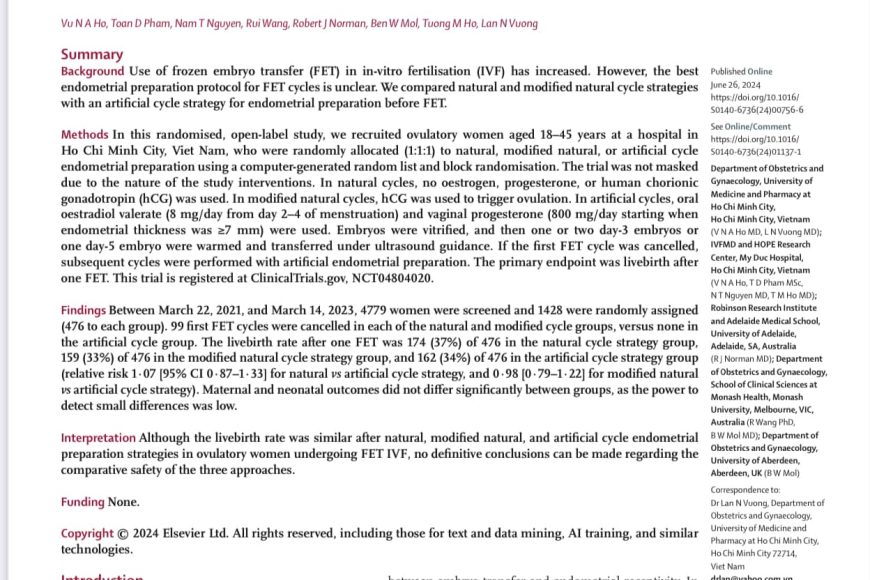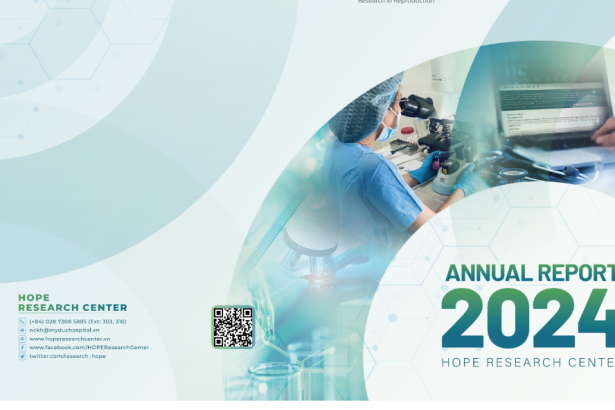The study’s main purpose is to compare different protocols for endometrial preparation before frozen embryo transfer (FET).
The research was published in the first online in The Lancet on June 27, 2024.
In a randomized controlled trial (RCT) of 1,428 couples, the authors found that the live birth after FET was 174 (37%) of 476 in the natural cycle strategy group, 159 (33%) of 476 in the modified natural cycle strategy group, and 162 (34%) of 476 in the artificial cycle strategy group (relative risk 1·07 [95% CI 0·87–1·33] for natural vs artificial cycle strategy, and 0·98 [0·79–1·22] for modified natural vs artificial cycle strategy). Maternal and neonatal outcomes did not differ significantly between groups, likely due to the low power to detect small differences.
This groundbreaking study, the largest randomized trial to date, is the first to provide a comprehensive assessment of the efficacy and safety of the three most commonly used endometrial preparation regimens in current clinical practice. Its thoroughness and rigour ensure the reliability of the results.



